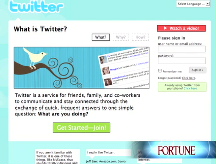Continuing jobless claims set record
The number of Americans who applied for first-time unemployment benefits holds at 627,000.
NEW YORK (CNNMoney.com) -- The number of Americans continuing to file for unemployment benefits has hit a record high, according to a government report released Thursday.
The number of workers receiving unemployment checks for one week or more rose to a record 4,987,000 in the week ended Feb. 7, the most recent data available. That tops the previous week's revised level of 4,817,000.
The Labor Department has been keeping records since 1967.
The record high level of continuing claims was "troubling," according to Adam York, economic analyst at Wachovia.
"When people are losing their jobs, they are not finding new ones quickly," said York.
The 4-week moving average for continuing claims was 4,839,500, an increase of 92,500 from the preceding week's revised average of 4,747,000.
Initial claims: For the week ended Feb. 14, 627,000 Americans filed initial jobless claims, unchanged from the revised level of the previous week.
Economists polled by Briefing.com were expecting 620,000 claims for the most recent week. Two weeks prior, the 631,000 claims reported was the highest level since October 1982.
"Job losses are persistent at this point, but the good news is that they are not worsening," said York.
The 4-week moving average of initial jobless claims was 619,000, an increase of 10,500 from a revised 608,500 in the previous week.
York said the level of continuing claims could remain elevated even after the initial claims number starts to ease.
"Continuing claims is affected both by how many people are getting laid off and how quickly they are exiting the unemployment rolls," he explained.
Stimulus to the rescue: The stimulus bill that President Obama signed into law has several provisions that help those living on unemployment benefits.
The weekly unemployment benefit will temporarily increase by $25 on top of the roughly $300 jobless workers currently receive. In addition, the first $2,400 of benefits in 2009 would be exempt from federal income taxes.
Additionally, the bill provides jobless workers with an additional 20 weeks in unemployment benefits, and 13 weeks on top of that if they live in what's deemed a high unemployment state. ![]()


